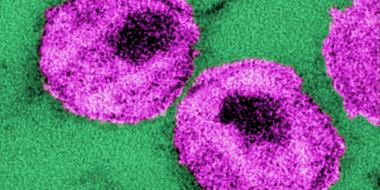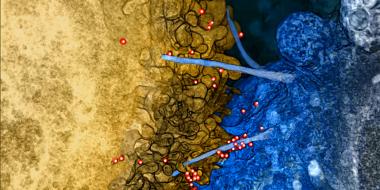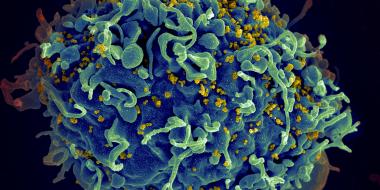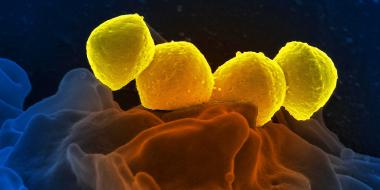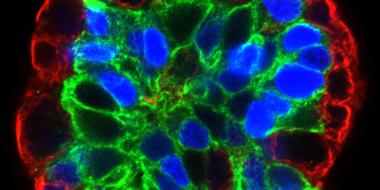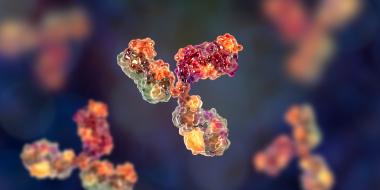Immunopathology
How does the immune system work when a person has a pathology? IrsiCaixa wants to answer this question in order to address the treatment of diseases.

Basic immunology research seeks to decipher the mechanisms and interactions triggered by the immune system in response to stimuli such as pathogens, while immunopathology is the branch of immunology that studies immune responses to pathologies. IrsiCaixa implements research projects aimed at understanding diseases, especially infectious diseases such as HIV/AIDS, from an immunological point of view.
Immunosenescence
The immune system, like any other organ, ages over time in a process called immunosenescence. People with infectious diseases, such as HIV/AIDS, experience premature immunosenescence because their immune system, permanently activated to fight a chronic infection, becomes exhausted and leaves security gaps that can lead to dysfunctions characteristic of ageing. IrsiCaixa has a dedicated research line for studying ageing in people with HIV and ways to halt or slow down this ageing. ART to treat HIV has been enormously successful in giving HIV-positive patients almost the same life expectancy as HIV-negative people, meaning that the scientific and medical community can now ensure that ageing is of the highest possible quality.
Neuroimmunology
HIV infection can cause neurological dysfunctions, especially in older people with ageing immune systems. The scientific foundations laid by IrsiCaixa over 25 years have allowed it to branch into neuroscience, with a special focus on the neurological implications of HIV infection and of Alzheimer disease. IrsiCaixa conducts research into molecular and epigenetic markers that can predict neurological dysfunctions in different diseases. It also investigates how these markers could be used to study neurological dysfunctions in Alzheimer disease, as the most common form of dementia. Since Alzheimer disease, according to the scientific literature, may be related to an imbalance in the microbiome, IrsiCaixa analyses and compares microbiome composition in healthy people and in people in initial Alzheimer stages, and is evaluating animal models to determine whether stool transplants can impact how Alzheimer develops.
